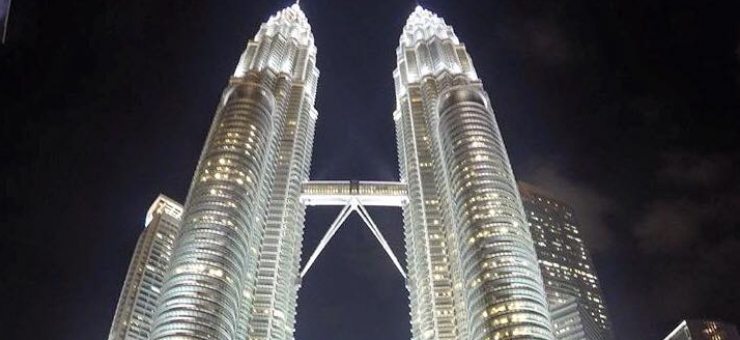UNI Apro: Scaling New Heights

UNI Apro’s 4th Regional Conference is being held on the 7 – 8 December 2015 at the Istana Hotel, Kuala Lumpur, Malaysia, under the theme, “Scaling New Heights: Including You in Surging Asia Pacific”, bringing together more than 600 affiliates . The conference will be opened by Hon Dato’ Seri DiRaja Dr. Zambry Bin Abd Kadir, Chief Minister of Perak Darul Ridzuan.
UNI Asia & Pacific (UNI APRO) represents 170 trade unions and over 3.2 million workers from 22 countries. We are part of the 20-million strong UNI Global Union family with 900 unions in 140 countries. UNI APRO represents 13 sectors: Cleaning/Security, Commerce, Finance, Gaming, Graphical & Packaging, Hair & Beauty, ICTS, Media, Entertainment & Arts, Post & Logistic, Temp & Agency Workers, Tourism, UNI World Athletes and UNICare.
The conference will focus on:
Significant developments in Commerce, ICTS, Post & Logistics, Finance, Graphical & Packaging and other service sectors covered by UNI and the impact on jobs and employment
Behaviour of multinational companies, and their supply chains operating in Asia Pacific including their influence on workers’ rights, and terms and condition of employment
Negative aspects caused by globalisation such as environmental deterioration, poverty, disparity and actions to overcome these including Global Agreements, and the Bangladesh Accord
Trends and analysis of democratisation in Asia Pacific – a positive or negative step? Including changes of government in Thailand, Indonesia, Philippines and Myanmar
Correlation between trade liberalisation, workers’ rights and decent work
Productive employment & decent work nationally and in the various economic integration process such as ASEAN, RCEP, TPP and SAARC
Develop strategy aimed at influencing global and regional governance institutions to promote a fairer, more equal world and ensure that its structures reflect the new economic and geopolitical reality, and consider options for a new era of partnership to bring about transformative changes that is so desperately needed in the world today
UNI Apro Regional Secretary Chris Ng said, “There is an urgent need to not only have judicious rules in the global financial markets but to also have minimum standard of ethical behaviour for CEOs at multinational companies.
There should also be greater space and flexibility for all countries especially developing ones, in pursuit of coherent social & economic policies to protect jobs & welfare of their working population.
“We urgently need a full review of the economic liberalisation policies because of the complex tangle of regional trade agreements. The regional economic integration developed by ASEAN and RCEP lacks pro-poor policies and significant investment in people’s capabilities. This is especially true in areas such as education, nutrition and health as well as employment skills that can expand access to decent work and provide for sustained progress. Equally important there is a need for a ‘Labour Chapter’ in the AEC and RCEP to enhance protection for all workers.”
UNI Global Union General Secretary, Philip Jennings said, “Our theme ‘Scaling New Heights’ speaks to ambition – ambition for people’s health, education, housing and decent work. None of this will happen without a strong, democratic and innovative labour movement. Without us it will be a race to the bottom.”
Background
Asia Pacific, the fastest growing economic region in the world, will see the long awaited ASEAN Economic Community (AEC) come into being at the end of 2015. This will result in a common market comprising of 600 million people with a combined GDP of nearly US$2.1 trillion. It will be the foundation of the ongoing negotiation for the Regional Comprehensive Economic Partnership (RCEP) which comprises 10 ASEAN member nations including China, South Korea, Japan, India, Australia and New Zealand. The RCEP would integrate all of ASEAN’s existing free-trade agreement into one integrated market of more than 3 billion people which is about 45% of the world’s population, contributing income gains of approximately $644 billion by 2025; equivalent to 0.6% of the world’s GDP due to faster flow of goods, services, investment and labour across the participating economies.
In the past two decades, the drivers of Asia’s economic success i.e.: - new technology, globalisation and market-oriented reforms have caused disparities within and between Asian countries. The race for globalisation is leaving the majority of the world’s population behind. According to UNICEF, the richest 20% of the population gets 83% of global income while the poorest has just 1%. The UNDP Human Report 2013, “The Rise of the South: Human Progress in a Diverse World” estimates that 75% of the population lives in societies where income distribution is less equal now than it was in the 1990s while the global GDP ballooned from US$ 22 trillion to US$ 72 trillion. As Joseph Stiglitz said, “Narrow globalisation has brought in its wake, inequality, social and labour discontents virtually everywhere.”
Press Contact:
Anne Jacob: +60 142498003
Richard Elliott: +41 79 794 9709
Follow us on twitter #UNIAPROKL2015

